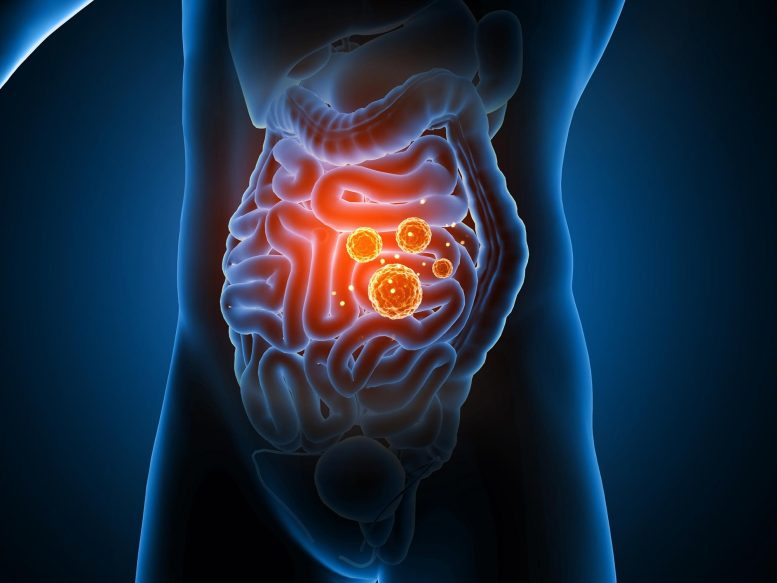
According to a recent Cochrane Review, stool transplantation has proven to be a more effective method of treating Clostridioides difficile infection as compared to standard antibiotic treatment.
According to a recent Cochrane Review headed by a professor at Upstate Medical University, stool transplantation has been found to improve the rate of recovery from Clostridioides difficile (C. diff) infection, a serious condition that can cause life-threatening diarrhea, compared to standard antibiotic treatment. The review revealed that 77% of patients who underwent a stool transplant did not experience a reinfection within 8 weeks, whereas only 40% of those who received antibiotics alone achieved the same outcome.
C. diff is a bacterium that can cause life-threatening diarrheal illness in individuals with an unhealthy mixture of gut bacteria, known as dysbiosis. The most common cause of dysbiosis is treatment with antibiotics, and while antibiotics can be very effective against bacterial infections, they can also harm the beneficial bacteria colonizing the gut, known as the intestinal microbiome. Usually, this ecosystem of “good” bacteria recovers quickly, but occasionally “bad” species like C. diff take over and cause serious diarrhea.
The standard treatment of C. diff infection includes antibiotics, which may further exacerbate dysbiosis. This can lead to a vicious cycle of brief treatment effect followed by a recurrent infection. This happens in nearly a third of infected individuals. According to the CDC, every year there are around a quarter of a million C. diff infections in the US alone, causing approximately 12,000 fatalities.
How Stool Transplantation Works
Transplanting healthy donor stool into a gut with dysbiosis is intended to balance the gut microbes and reestablish a healthy microbiome, thus significantly reducing the risk of C. diff recurring. Stool donation operates much the same way as blood donation. Donors are screened for diseases and infections before they can donate their stool. The stool can be transplanted via colonoscopy, nasogastric or nasoduodenal tube, enema or via a capsule. The US Food and Drug Administration has recently approved a stool transplant product for the prevention of the recurrence of C. diff that can be administered as an enema.
The new Cochrane Review, led by pediatric gastroenterologist Aamer Imdad MBBS, examined data from six clinical trials with a total of 320 adults that assessed the efficacy and safety of stool transplantation for the treatment of repeated C. diff infection. Two studies were conducted in Denmark, and one each in the Netherlands, Italy, Canada, and the United States. Most of the included studies compared stool transplantation with a standard antibiotic treatment using vancomycin, which is commonly used for this kind of infection.
The review found that stool transplantation leads to a larger increase in resolution of repeated infections of C. diff than other treatments studied, as well as a decrease in side effects when compared with standard treatment using antibiotics.
Breaking the Cycle of Recurring C. Diff Infections
“After a person with a C. diff infection gets treated with antibiotics, there is about a 25 percent chance that they will have another episode of C. diff infection in the next 8 weeks”, Imdad said. “The risk of recurrence increases to about 40 percent with the second episode and to nearly 60 percent with the third episode. So, once you are in this cycle, it gets more and more difficult to break out of it. Stool transplants can reverse the dysbiosis and thus decrease the risk of recurrence of the disease.”
A second Cochrane Review, also led by Dr. Imdad, looks at the use of stool transplants for the treatment of inflammatory bowel disease (IBD), a term mainly used to describe two conditions: ulcerative colitis and Crohn’s disease. The review shows promising results for ulcerative colitis; however, the data is not conclusive yet. Results for Crohn’s disease are even less conclusive. More research will be required before stool transplants can be considered for the treatment of IBD.
References:
“Fecal microbiota transplantation for the treatment of recurrent Clostridioides difficile (Clostridium difficile)” by Nathan Zev Minkoff, Scheherzade Aslam, Melissa Medina, Emily E Tanner-Smith, Joseph P Zackular, Sari Acra, Maribeth R Nicholson and Aamer Imdad, 25 April 2023, Cochrane Database of Systematic Reviews.
DOI: 10.1002/14651858.CD013871.pub2
“Fecal transplantation for treatment of inflammatory bowel disease” by Aamer Imdad, Natasha G Pandit, Muizz Zaman, Nathan Zev Minkoff, Emily E Tanner-Smith, Oscar G Gomez-Duarte, Sari Acra and Maribeth R Nicholson, 25 April 2023, Cochrane Database of Systematic Reviews.
DOI: 10.1002/14651858.CD012774.pub3
Imdad collaborated with doctors around the country on both studies, including Nathan Zev Minkoff, a graduate from the Norton College of Medicine, Upstate students Natasha Pandit and Muiz Zaman, Class of 2023 in the Norton College of Medicine and Melissa Medina, Class of 2026 in the Department of Public Health and Preventative Medicine, on the C-diff study. The other collaborators included Dr. Maribeth Nicholson and Dr. Sari Acra from Vanderbilt University Medical Center, Dr. Scheherzade Asalam from University of Nebraska, Dr. Emily E Tanner Smith from University of Oregon, Dr. Oscar Gomez from University of Buffalo and Dr. Joseph Zackular from University of Pennsylvania.
Never miss a breakthrough: Join the SciTechDaily newsletter.
1 Comment
I was infected with C.Diff in 2018 by the hospital I was at for getting my appendix removed.
Worst experience of my life. I was in the hospital for a week straight.
I had 6 months of hell before my gut finally stabilized and ever since I’ve had IBS.